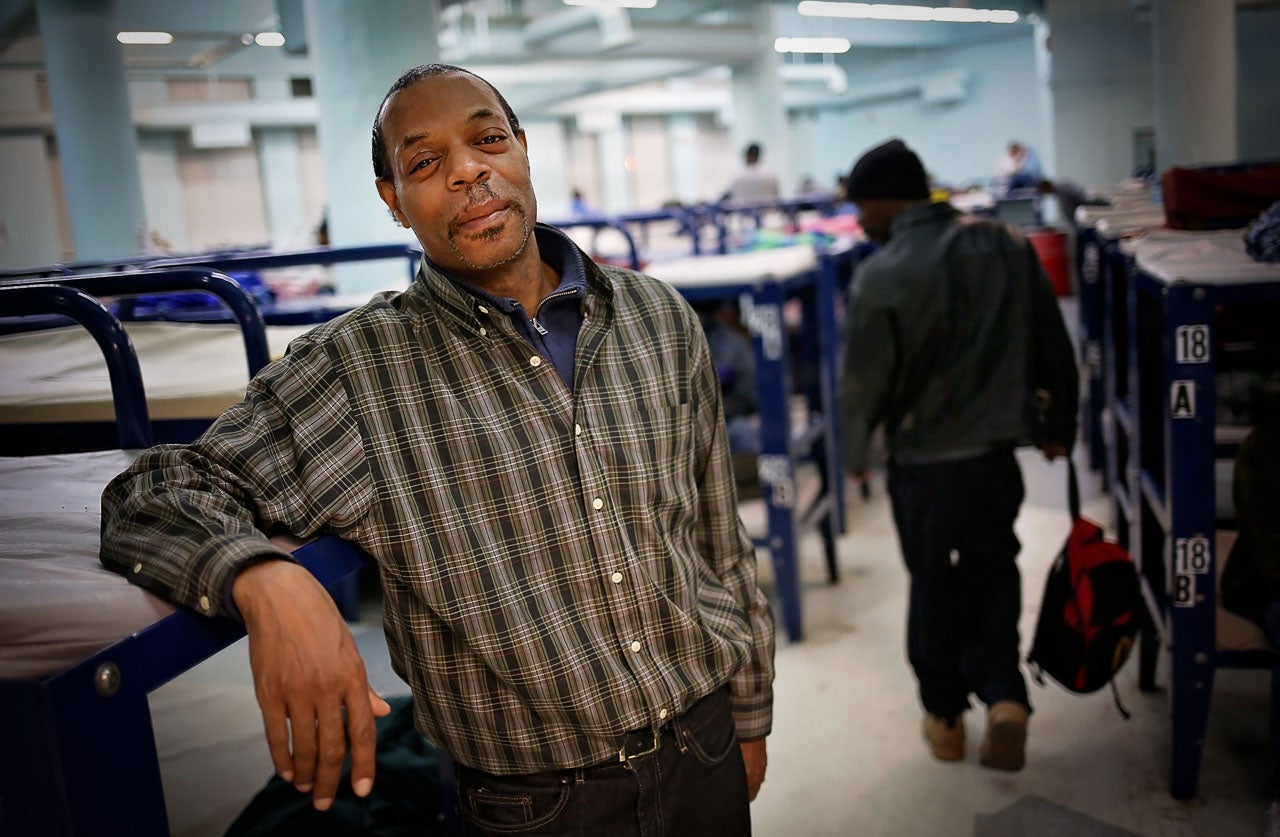
Denver Harbor Light Center
Each year WE ARE THERE for more than 120 men who find sobriety at our Denver Harbor Light Center.
The Salvation Army’s Harbor Light Center is a comprehensive residential treatment facility that can accommodate up to 120 men at a time. In addition to providing a safe and structured environment, Harbor Light offers a range of support services, including educational classes, job-readiness training, and transitional living assistance.
Staff members are specifically trained to also help participants secure employment, ensuring they have the resources and skills to rebuild their lives. Nearly all residents are from our 4-state area, but anyone from the US can come and receive free treatment here.
Serving Those Who for Us
Of the men served at Denver Harbor Light, 40% are veterans. Many of these men battle chronic homelessness – not addiction and need assistance overcoming the issues that have contributed to their current situation.
Freedom from Addiction
The primary goal of this facility is to help men obtain a sustainable, self-sufficient living situation free from addiction through the development of essential life skills.
Eligibility Guidelines
Must have successfully completed a detox program.
Contact Information
Phone: 720-305-5670
Email Intake Coordinator: HLIntakeApplication@usw.salvationarmy.org
Office Hours: 8:30am – 4:30pm, Monday – Friday
Help Support the Denver Harbor Light
Why Harbor Light
The Salvation Army’s Harbor Light Center is a comprehensive residential treatment facility that can accommodate up to 120 men at a time. In addition to providing a safe and structured environment, Harbor Light offers a range of support services, including educational classes, job-readiness training, and transitional living assistance. Staff members are specifically trained to also help participants secure employment, ensuring they have the resources and skills to rebuild their lives. Nearly all residents are from our 4-state area, but anyone from the US can come and receive free treatment here.
Spiritual Growth and Program Success
A unique and powerful aspect of Harbor Light is its emphasis on spiritual growth, which is credited with the program’s consistently high success rates. Last year, 59 men graduated from the Harbor Light program, with 86% of those graduates maintaining sobriety, stability, and other positive outcomes 90 days after completing the program. This faith-based approach, coupled with evidence-based treatment methods, fosters a supportive community that addresses the physical, emotional, and spiritual needs of each participant.
Continuum of Care
Harbor Light Centers often provide a continuum of care to address the various stages of recovery. This may include:
- Outpatient and Aftercare: Follow-up counseling, support groups, and referral services to ensure sustained progress beyond the residential phase.
- Transitional and Permanent Housing Assistance: Guidance and resources to secure stable housing as participants move toward independence.
Holistic Support Services
Beyond addiction treatment, Harbor Light strives to meet a broad range of needs:
- Life Skills Training: Classes in budgeting, conflict resolution, and parenting.
- Family Reunification: Counseling and support groups to help mend relationships affected by substance abuse.
- Community Partnerships: Collaborations with local businesses, nonprofits, and government agencies to maximize employment opportunities and community integration.
Why Harbor Light Works
Harbor Light’s faith-based framework and holistic treatment model combine to create an environment of accountability, compassion, and hope. By integrating spiritual development, life skills training, and professional counseling, participants are empowered to overcome substance abuse, address underlying issues, and transition to stable, productive lives.
Overall, Harbor Light stands out for its commitment to each individual’s long-term success, offering not just treatment but a path to renewed purpose and self-sufficiency.
PHASE 1: RELAPSE PREVENTION & EDUCATION
During this three-month phase, men focus on staying sober through various evidence based relapse prevention programming and recovery oriented curriculum. 12-step program participation and one-on-one intensive case management. They also begin life skills classes.
PHASE 2: VOCATIONAL & SPIRITUAL GROWTH
At this point, the men begin the transition phase of the program and start working on skills like saving and budgeting. This phase typically lasts three months. It is at this point that men may start securing employment, while continuing to meet regularly with their case manager.
PHASE 3: TRANSITIONAL LIVING
After the completion of phase two, men have the ability to move into transitional housing for up to two years while working toward financial stability by saving a portion of their monthly income.
To learn more email us at HLIntakeApplication@usw.salvationarmy.org